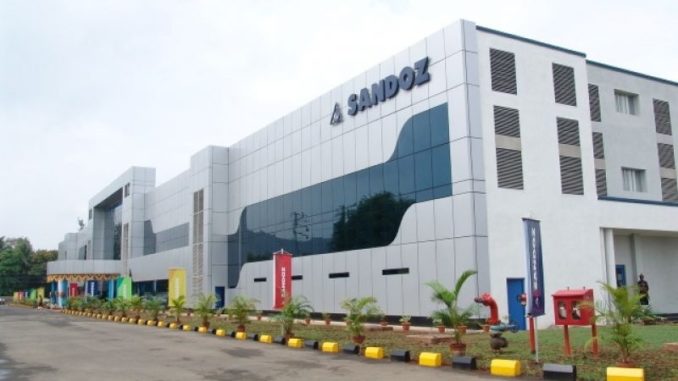The Sandoz unit of Novartis (NVS) puts on halt global distribution of heartburn medicines, which reportedly, contain an impurity classified as a possible carcinogen to humans. It also issued a recall of those drugs in Canada and some European countries.
The potentially dangerous ingredient was detected in ranitidine medicines and is called NDMA. It is an organic chemical, which was previously used in the process of rocket fuel manufacturing. It appeared to be an unintended byproduct of a certain number of chemical reactions and was found in the medicines, which were available both over-the-counter as well as by prescription.

The same impurity was also found last year in blood pressure pills and this prompted a series of ongoing recalls. This, in its turn, sparked broad concerns over the quality and reliability of the pharmaceutical supply chain. Health Canada made a decision to not allow ranitidine medicines to be distributed until it is confirmed that products don’t contain hazardous ingredient above what’s considered acceptable.
The prompt to review NDMA levels in meds was induced last June after an online pharmacy Valisure alerted FDA to the issue. The pharmacy conducted its own analysis and found that levels of potentially dangerous ingredient are too high. As their next move, the pharmacy filed a citizen’s petition asking the FDA to recall heartburn medicines that contain NDMA. Valisure though believes that the FDA is inclined to diminish the real importance of the issue.
According to Valisure chief executive David Light, “The current statements from the FDA are focusing on the problem being a contaminant was found and that is not accurate. There’s an inherent instability that affects all products containing ranitidine, which is not like the situation with valsartan. There you have some lots that are clean and some that are contaminated at various levels.”
Health Canada reported that Sandoz is set to recall its heartburn medicine from some European countries and Canada after tests identified that the amount of NDMA ingredient is above the acceptable levels, in case the medications were to be taken over a lifetime. A Sandoz representative confirmed the results of findings but the levels of detected NDMA were not disclosed.
The drug maker stated that the distribution stop of all Sandoz ranitidine-containing medications can be called a precautionary measure and will remain in place under further clarification. The halt is interim until the required information and results of the assessment are gathered from companies and international regulators. In the meantime, existing inventories will continue to be sold at pharmacies, as opposed to a product recall.
As for the U.S., the recall is not scheduled there yet because Sandoz is currently working with the FDA in terms of testing the medicine. The Sandoz representative provided data according to which the same ingredient is obtained from different suppliers and this requires additional separate testing to figure out how much NDMA appears in the existing inventory. A spokesman for the FDA confirmed that a review is underway but he didn’t address the issue related to requesting manufacturers to temporarily stop the distribution.
A spokesman for Sanofi (SNY) wrote that the company is not planning to recall any products at the moment explaining that there is no reason to consider such measures to be necessary at this point. They work closely with the FDA and conduct their own investigations to ensure that the highest quality manufacturing and safety standards are met.
An EMA representative informed that the updates will be published when more data becomes available. She also added that in the case with the European Union, national authorities make decisions with regards to the distribution of medicines and their recalls.
Such latest events are expected to raise anxieties concerning quality control issues. Last year, several companies issued a recall of the blood pressure pills, testing of which showed traces of NDMA. Besides, some supplies dated several years back. In the meantime, potentially dangerous medications have been sold to millions of people in more than twenty countries.
The issue is also raising additional questions regarding regulatory oversight. Concerns over the quality control issues are regular and now even growing in such countries as China and India, where many suppliers are located. Previously, the FDA tried to behave in a defensive way after the reports stated that a number of inspections found laboratory procedures at Indian and Chinese companies, which supplied the main ingredient, troubling.



